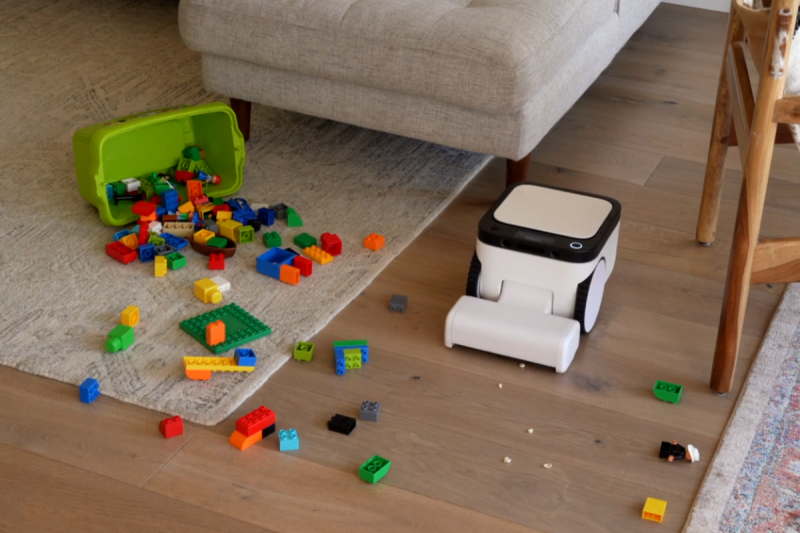

All Your Robots Are Belong To Us: You Just Rent Them
source link: https://hackaday.com/2023/05/29/all-your-robots-are-belong-to-us-you-just-rent-them/
Go to the source link to view the article. You can view the picture content, updated content and better typesetting reading experience. If the link is broken, please click the button below to view the snapshot at that time.
All Your Robots Are Belong To Us: You Just Rent Them

Monthly bills. Everyone has them. Except if you go far enough back, not everyone had them. After all, you might live in a home your family has owned for generations. You might be able to produce all the basic necessities using your homestead: food from a garden, water from a well, textiles, soap, and candles. You might have to buy the occasional animal, but your recurring bills could be modest outside of the ever-present tax burden.
But as people moved to cities, they had to pay rent. Buy gas or coal and, eventually, electricity. Water and trash collection are pretty essential, too. But at some point, everyone realized that being in a position to bill you monthly is a good idea. Now we pay for the internet, movie subscriptions, meal plans, alarm monitoring, shopping clubs, cell phones, spa memberships. Soon we might be paying a monthly fee for our robots, too.
Rent To (Not) Own
In industry, this is a common occurrence. You often don’t buy a robot arm or similar device. That, after all, is a capital expense, and most tax codes require you to count it as an asset that slowly depreciates. Instead, you hire a robot from a service provider. Not only does that make it a pure expense, but the provider worries about software, repairs, and all that.
But at home, it is different. There’s no tax advantage in most places between owning a car and leasing it. Yet vendors want to adopt a rent-a-robot strategy. Case in point: a startup named Matician wants you to sign up for a robotic vacuum. For $125 a month, you get a super smart robot vacuum. You could, of course, buy a Roomba, but — according to Matician — the Matic robot uses computer vision to map your house and automatically finds messes. You can also voice command it to clean up areas. It also avoids wire and furniture. They didn’t mention if it can avoid presents left by your pets or not. It will avoid pets and kids, though.
On the face of it, we predict a bad future for Matician. Even if their tech is better than the brand-name robot vacuums, it can’t be that hard to build a similar or better robot that you can buy and own. Unless, of course, all the other vendors realize that the monthly fee bandwagon is the place to be. Then all bets are off.
But you can’t help but wonder if it isn’t going to be just robot vacuums. How long before you pay a monthly fee for your hot water heater? Pay per flush in the bathroom? Already we’ve seen cars that can perform better for a fee and motorcycle protection that shuts off if you fail to make your required payment.
Smart Consumers
DIVX: Buy the disc, rent the movie.
Consumers have too wary to fall for this, but it seems like that may be changing. For example, consider the recent historical example of DIVX, the Digital Video Express format from Circuit City (and not the DivX codec). DIVX players had a feature where you could rent a DVD and never return it. Later, if you wanted to watch it again, the DIVX player could charge you a fee to watch it, or if you fed enough virtual coins into the virtual slot, you could own the disk forever.
Renting might actually make sense for something you don’t use very often. Most people can’t justify buying a cement mixer, but you can rent one for a weekend every few years. But a floor vacuum? Your car? Your word processing software?
Just like DIVX, though, there is only one way to combat this: with your wallet. Companies will do what they can make money doing, and honestly, you can’t blame them for that. Don’t get me wrong, paying for an actual service is great. If someone comes to your home and cleans for you, they should be getting paid. Maybe they even have a robot helper. If someone monitors your home alarm or stores your files remotely, they have expenses that must be paid, and they are entitled to a fair profit. But it is hard to swallow that someone expects you to pay for something that you already own that requires no further action from them.
The Cost
It is one of those things that is hard to articulate but easy to identify. In cases where something is expensive, and you rent to own, that makes sense. Renting might also make sense for something that requires frequent, costly maintenance, or that you use infrequently. Computers and copy machines used to fit that description, and companies rarely bought them but rented them — and also enjoyed having an expense instead of a capital asset. Of course, once those things got cheap… look at fax machines; same story.
There are other hidden costs of renting. For example, today, you can decide that version 2.0 of a program meets your needs and refuse to upgrade. But if you subscribe to that same program, the vendor may discontinue your subscription or price it higher to force you to change because, of course, it “costs more” to offer support for the older software.
Another example is a slowdown in innovation. If you build a circuit simulation program and offer it for sale, you improve it for at least three reasons. First, you want to entice people away from buying competitors. Second, you want to attract new customers. But you must also convince people who already paid you for the software to invest in an upgrade. That last reason goes away if the user pays you every month, rain or shine.
In the end, the free market will decide. If you continue to pay for services, they will happily oblige you. However, it seems like a market opportunity to create new devices and programs that replace pay-as-you-go with something of equal capability that you can buy outright. Smart people ought to flock to a product like that.
Recommend
About Joyk
Aggregate valuable and interesting links.
Joyk means Joy of geeK
